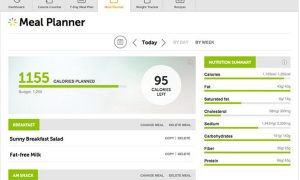Understanding How Nutritional Habits Can Impact the Ability To Manage Healthily Calorie Consumption

It’s no secret that what we eat and drink can have a profound impact on our overall health. But did you know that your nutritional habits can also affect how well you manage your calorie consumption? With so many people trying to lose weight or maintain their weight, understanding how nutritional habits affect appetite control pills and the ability to manage calorie intake is essential for successful long-term results. In this article, we’ll explore how nutrition affects calorie management and provide tips for making healthier food choices.
What is Calorie Management?
Calorie management means controlling the number of calories you consume and expends in order to achieve a desired result such as weight loss or maintenance. The goal of calorie management is to ensure that the calories consumed are balanced with those burned through physical activity in order to maintain healthy body weight. It’s important to note that while managing calories is important, it should be done in conjunction with other healthy practices including regular physical activity and eating nutritious foods.
The Role of Nutrition in Appetite Control Pills
Appetite control pills work by suppressing hunger hormones which help reduce cravings and make it easier for individuals to stick with healthy eating plans. While these medications may be effective at controlling hunger, they don’t address underlying issues like poor dietary habits or nutrient deficiencies which can contribute to overeating. That’s why it’s important for people taking appetite control pills to supplement them with good nutrition practices such as eating plenty of fruits and vegetables and limiting processed foods. This will help maximize the effectiveness of the medication while providing nourishing fuel for your body.
Nutrients & Calories: What You Need To Know
When it comes to managing calories, not all nutrients are created equal – some provide more energy than others while still being beneficial for overall health. For example, fats contain nine calories per gram compared to four calories per gram in carbohydrates or proteins, but they’re essential for maintaining cell health and providing energy during periods of low-carb intake (like when fasting). Therefore, although fat has more potential energy than carbs or protein, its high nutrient value makes it an important part of any diet plan aimed at keeping calorie intake under control.
In addition, certain micronutrients like B vitamins play an important role in regulating energy metabolism which can further support efforts at limiting caloric intake without sacrificing nutrient density from your meals. When combined with regular physical activity, getting enough quality nutrients from whole sources like fruits and vegetables provides an ideal foundation for achieving sustainable weight loss goals over time – even if you’re taking appetite control pills!
How To Make Healthy Food Choices For Calorie Management
Making healthier food choices starts with understanding basic principles about nutrition such as portion size, reading labels carefully, avoiding processed foods when possible and incorporating more natural whole foods into your diet whenever possible. Additionally, selecting lower-calorie options within each food group can help keep daily caloric intake within a reasonable range without sacrificing taste or variety when building out meal plans over time:
- Fruits & Vegetables: Choose fresh fruits/veggies instead of canned varieties whenever possible; limit starchy root veggies (potatoes) due to higher carbohydrate content; opt for frozen produce if fresh isn’t available
- Grains & Legumes: Look for whole grain products rather than refined grains; choose legumes (lentils/beans) over animal proteins due to higher fiber content; add nuts/seeds sparingly due to higher fat content
- Dairy & Eggs: Opt for light dairy products when possible; replace full-fat cheese/yogurt with nonfat versions occasionally; go easy on egg yolks since they contain most of the cholesterol found in eggs
- Protein Sources: Select lean proteins such as fish/poultry over red meats; incorporate plant-based proteins whenever possible (tofu/tempeh); use small amounts of oils (olive oil) when cooking instead of butter
- Beverages: Avoid sugary beverages like soda/juice; replace them with water whenever possible; limit caffeine-containing drinks since they may increase blood sugar levels

Conclusion Managing caloric intake effectively goes beyond simply counting calories – understanding how different types of nutrients interact within our bodies is key to achieving lasting success through proper nutrition practices combined with regular exercise routines as well as lifestyle modifications where necessary. While appetite control pills may offer short-term relief from intense hunger cravings, integrating better dietary habits along with mindful eating will ensure optimal success in terms of both long-term calorie management objectives as well as improved overall health outcomes through better nutritional practices!

































